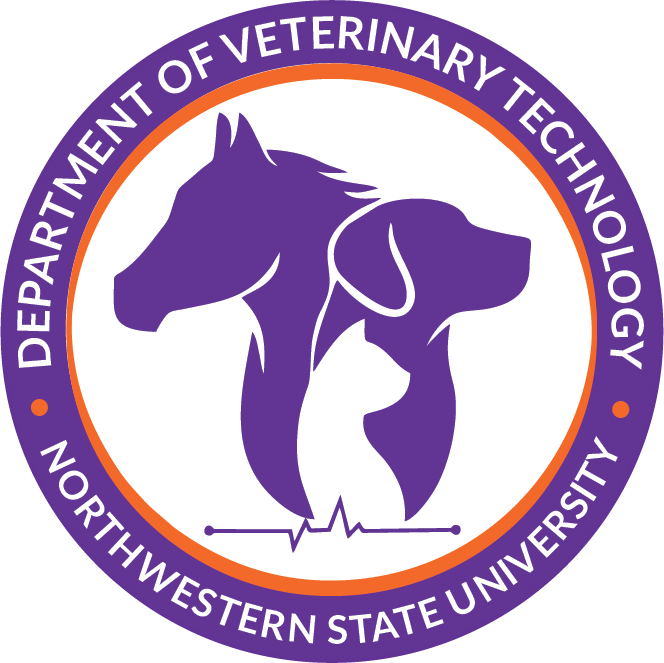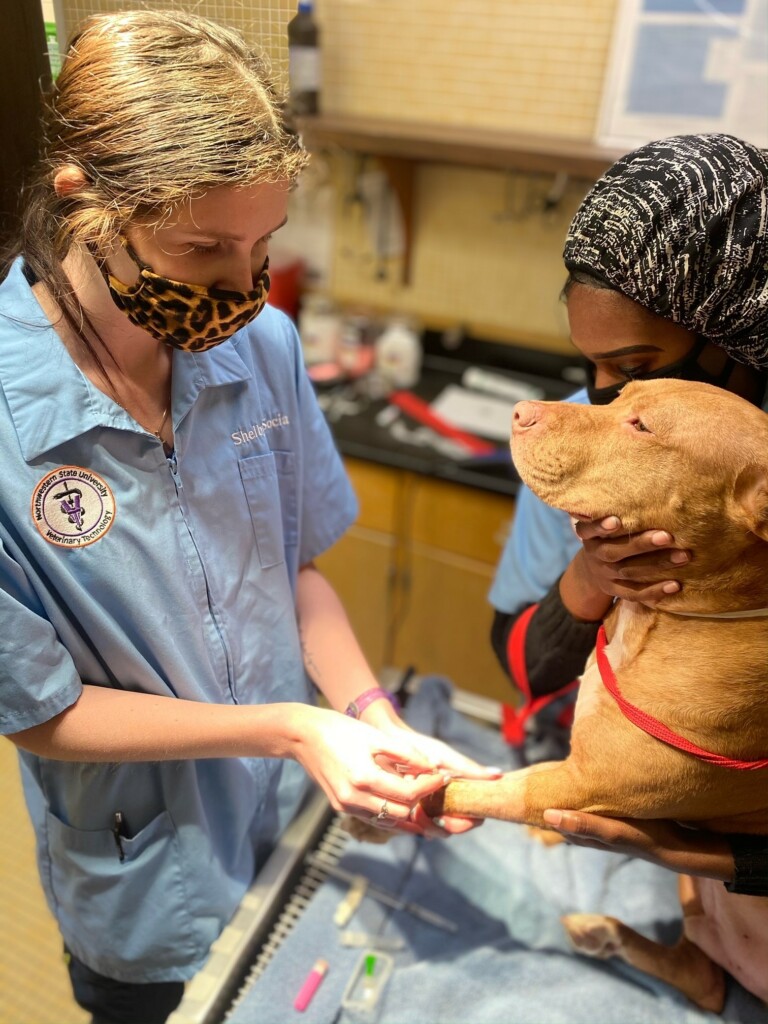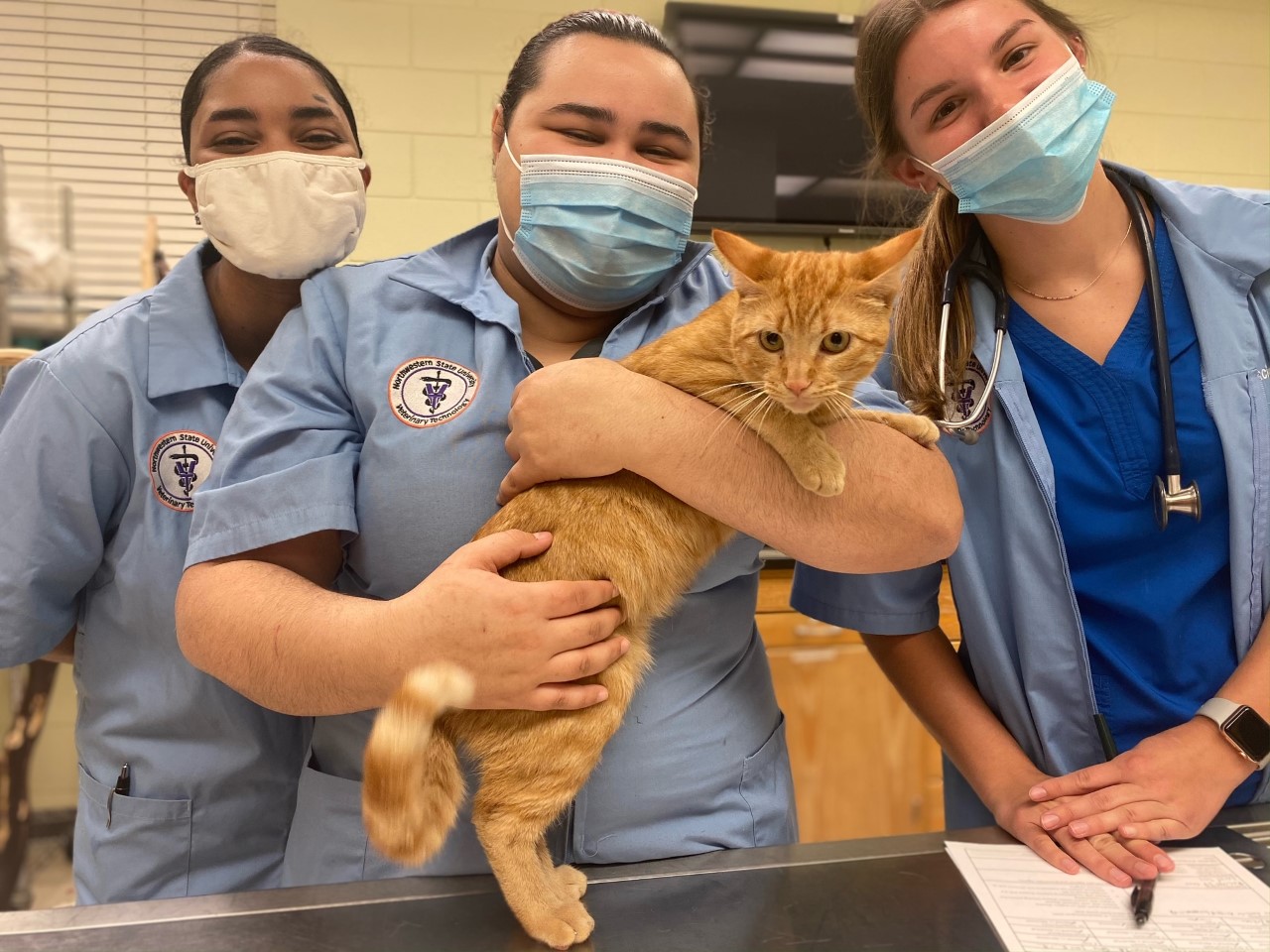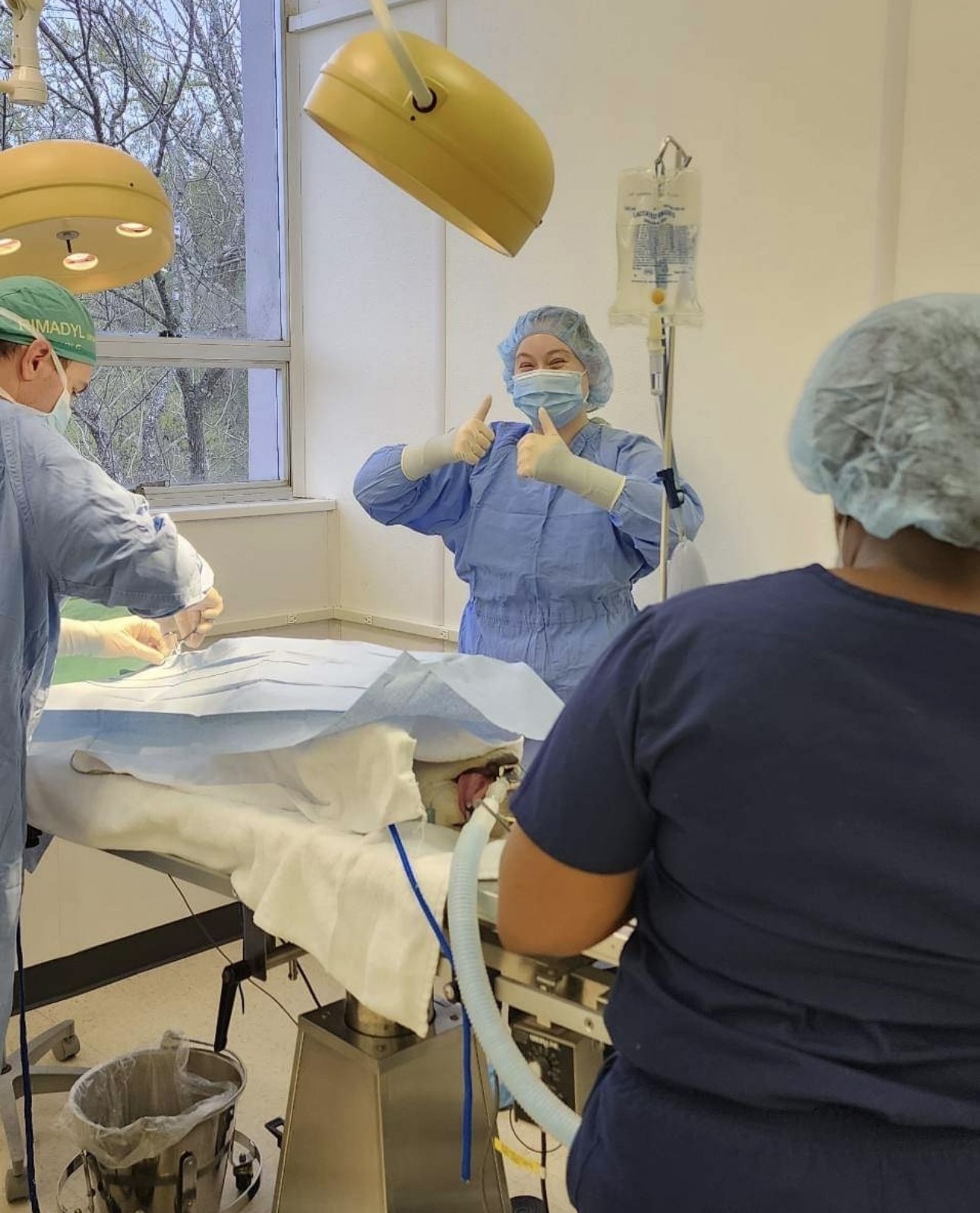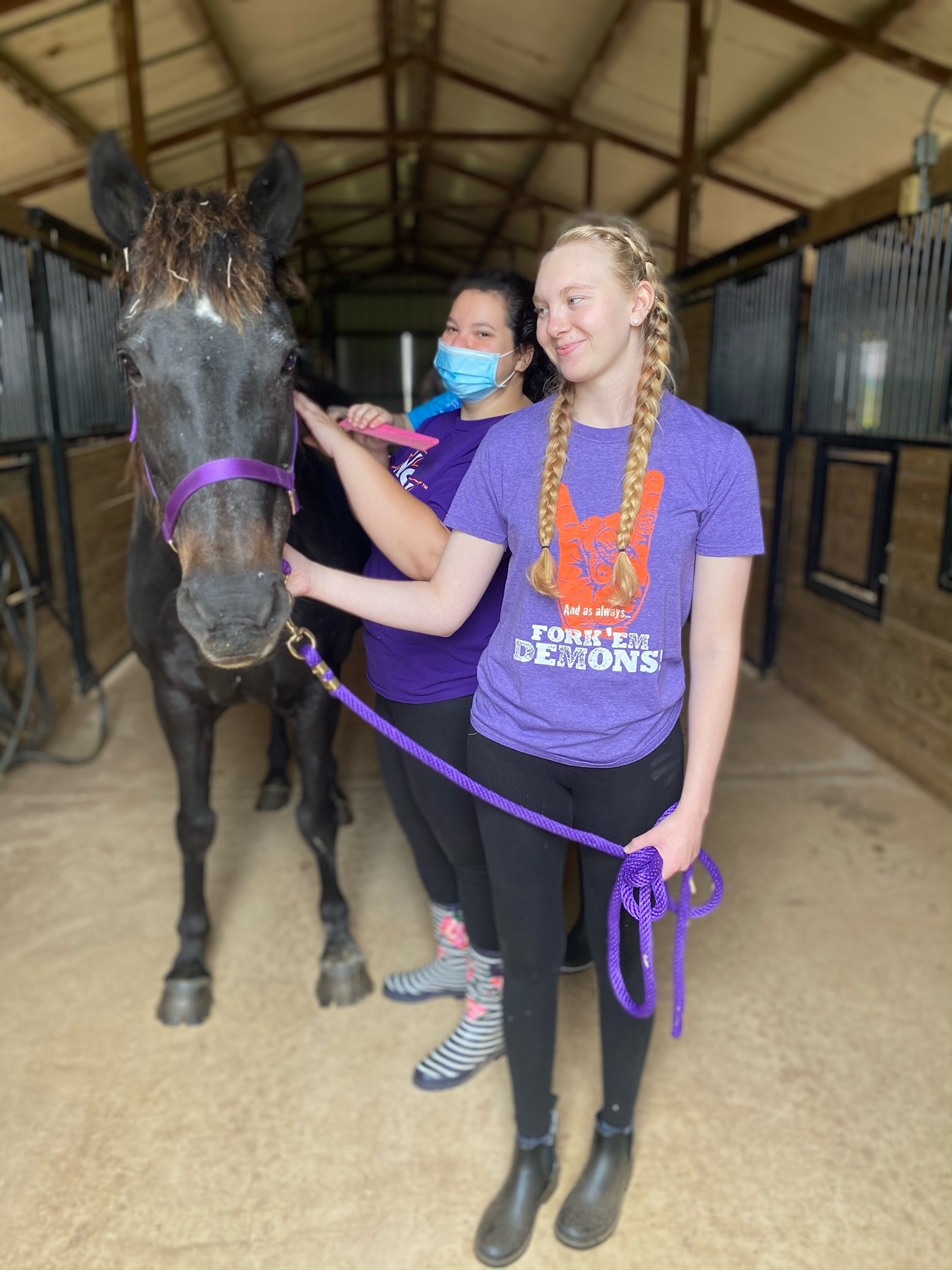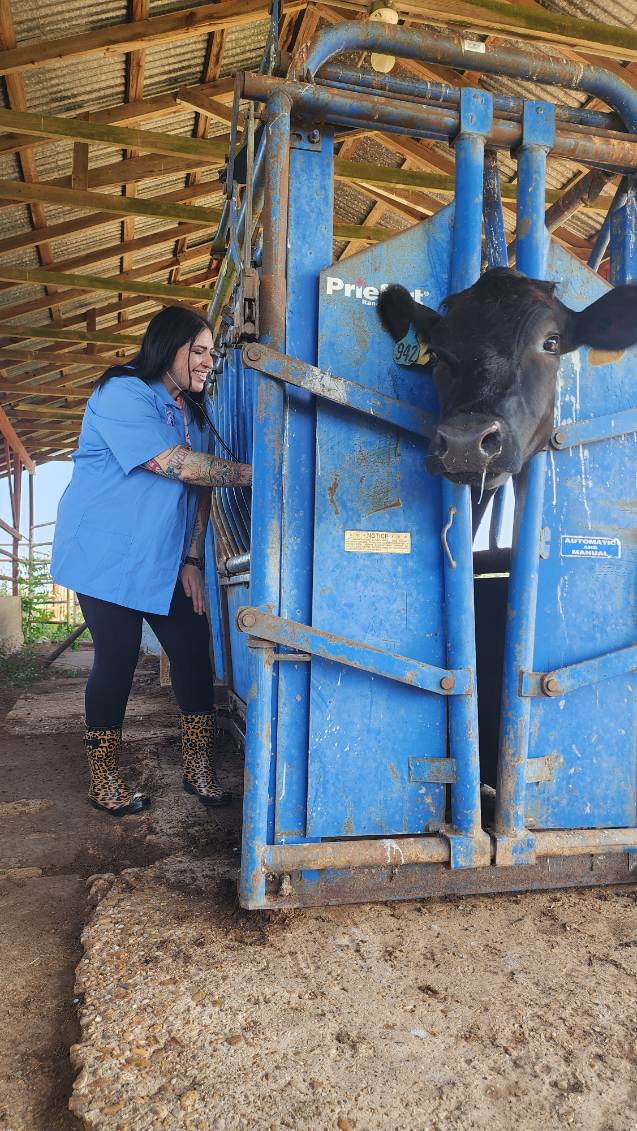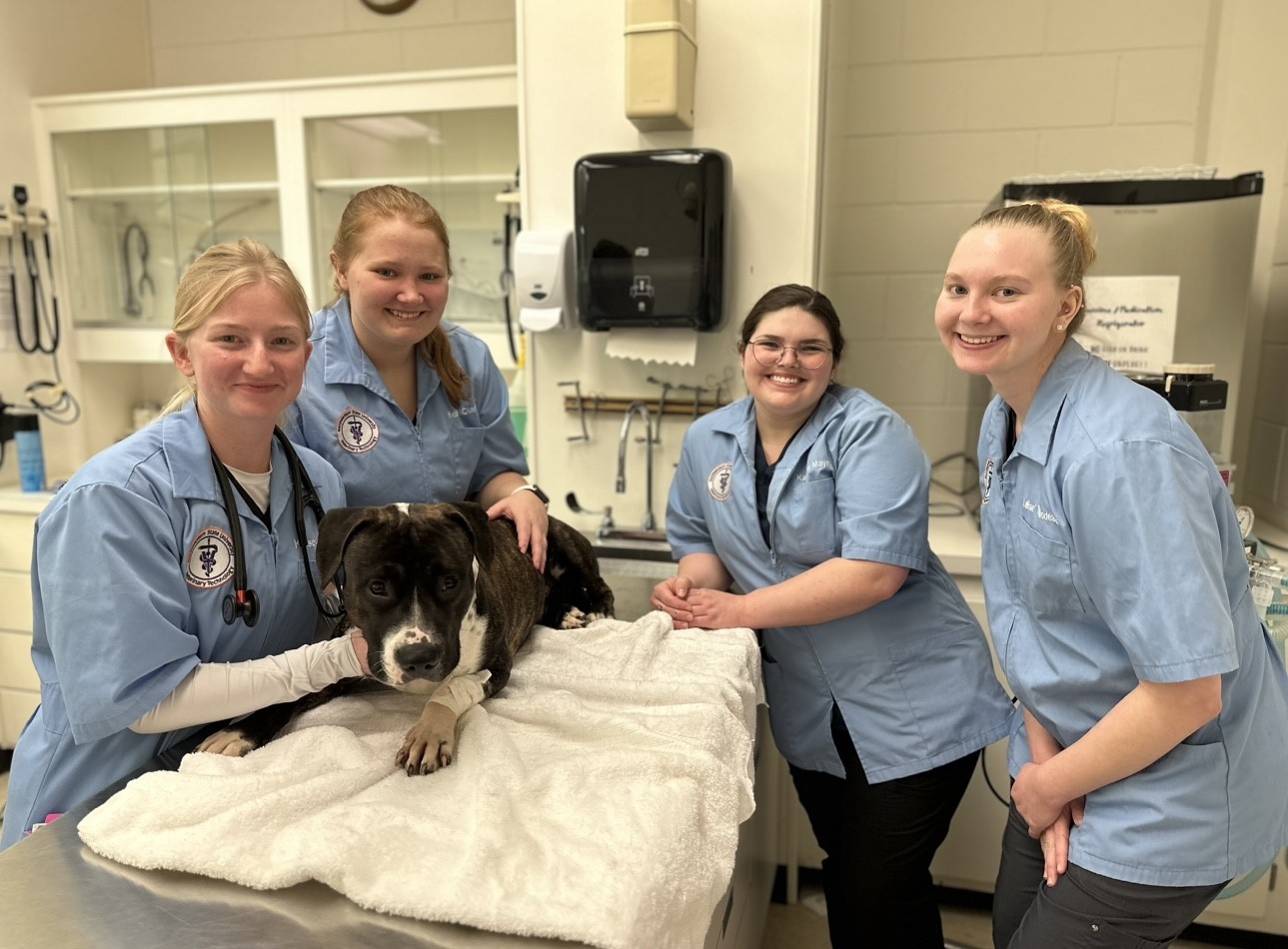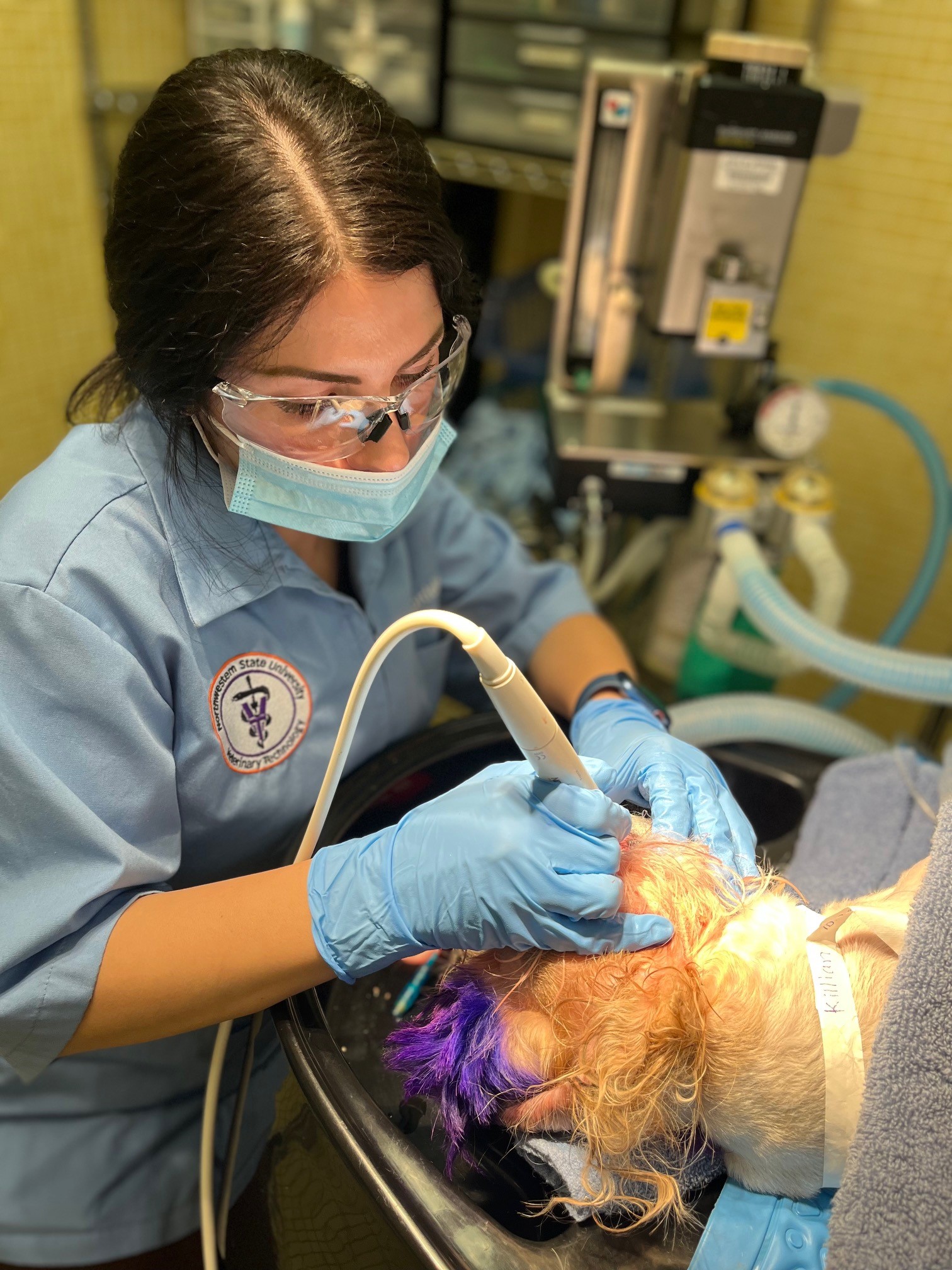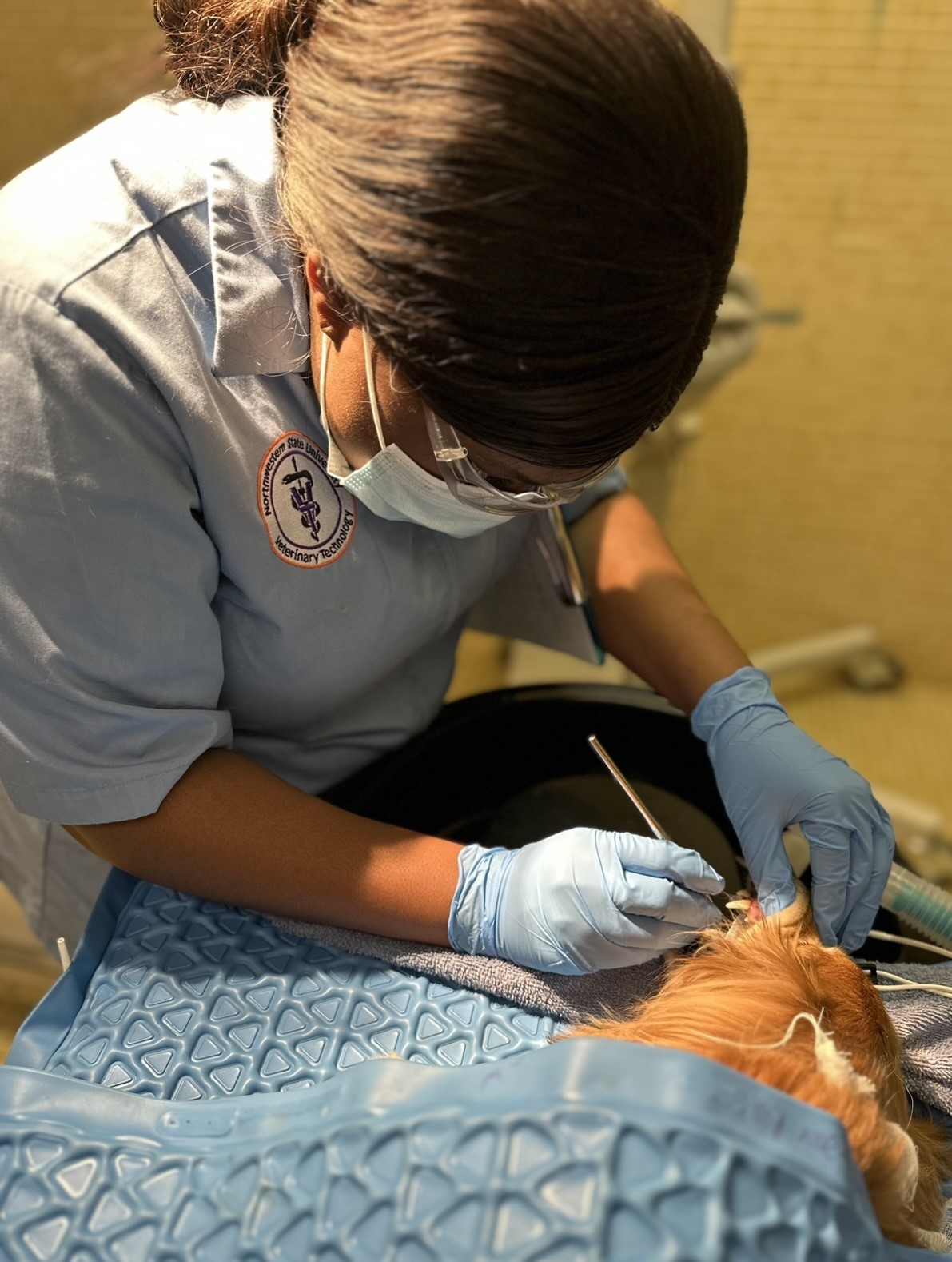Welcome to the NSU Department of Veterinary Technology
History
The Veterinary Technology Program at Northwestern State University of Louisiana (NSULA) in Natchitoches, LA received its initial accreditation from the American Veterinary Medical Association Committee on Veterinary Technician Education and Activities (AVMA-CVTEA) in 1981. NSU’s program is the longest running veterinary technology program in the state of Louisiana and has been fully accredited by the AVMA since September 1991. In Fall 2010, the program began accepting students in a Veterinary Technology concentration of the Bachelor of Science degree program in Biology. We are unique at NSU considering that we have the only bachelor’s degree associated with veterinary technology of the AVMA accredited programs in Louisiana and are one of only 28 programs in the United States that offer this degree.
Mission Statement
The mission of the NSULA Veterinary Technology Program is to prepare graduates who as veterinary technicians or technologists are clinically competent and demonstrate:
- excellent and compassionate patient care and services;
- excellent technical skills;
- professionalism and high ethical standards;
- promotion of public health;
- commitment to lifelong learning.
Why NSU Veterinary Technology?
As a student in the program, you will be instructed, advised, and mentored by faculty veterinarians and registered veterinary technicians that have each worked in veterinary practices and are passionate about passing on that clinical experience to students. Our faculty and staff educate students with the most current veterinary knowledge that is applicable to the broad field of veterinary medicine and necessary to pass their national board exam. The program possesses all of the components of a well-equipped veterinary hospital to provide students with the hands-on training that is applicable to their career in veterinary medicine and desired by employers. Small animals, horses, and cattle are housed on-campus to provide students with the access and training necessary to complete all required essential skills while on campus. At the conclusion of the curriculum, students attend internships in veterinary hospitals to gain more experience and become better acquainted with the pace and integration of knowledge and skills into a fully functional veterinary hospital.
Our Veterinary Technology curriculum provides students with the requirements necessary to sit for the Veterinary Technician National Examination (VTNE). Upon successful completion of the VTNE and registration with the State Board of Veterinary Medicine, the graduate will be credentialed as a Registered Veterinary Technician (RVT).
Career Opportunities
- Veterinary Hospitals (Private, Corporate, and Specialty Practices)
- Including Small Animal, Exotics, Equine, Food Animal, Lab Animal Medicine
- Animal & Biomedical research facilities
- Zoo and wildlife facilities
- Diagnostic laboratories
- Pharmaceutical companies
- Pet nutrition companies
- Food safety inspection
- Humane societies and animal control
- Academia & Education
- Potential acceptance into veterinary school for further training to become a Doctor of Veterinary Medicine – DVM
Employment Outlook
The US Bureau of Labor Statistics projects the employment of veterinary technologists and technicians is projected to grow 20 percent from 2021 to 2031, which is much faster than the average for all occupations.
Program
Curriculum
At NSU, we offer two degree options for students in Veterinary Technology. The first is an Associate Degree that includes 82 credit hours of courses. The second is a Bachelor of Science in Biology with a Veterinary Technology concentration that includes 120 credit hours of courses. Either of these degrees provide students with the requirements necessary to sit for the Veterinary Technician National Examination (VTNE). Upon successful completion of the VTNE, and registration with the State Board of Veterinary Medicine, the graduate will be credentialed as a Registered Veterinary Technician (RVT). We highly recommend the bachelor’s degree for pre-vet students that are using our curriculum to complete their prerequisite courses for application to veterinary school to become a Doctor of Veterinary Medicine.
- The VTNE 3-year first time pass rate for NSU students can be found in the Documents tab.
The Northwestern State University Veterinary Technology Program is currently fully accredited by the AVMA-CVTEA.
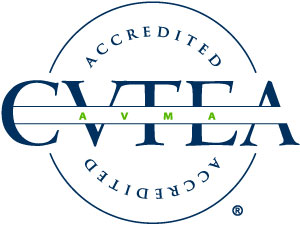
Documents
Contact Us
Northwestern State University
Department of Veterinary Technology
135 Sam Sibley Dr.
325 Bienvenu Hall
Natchitoches, LA 71497
Office: 318-357-6019 / Fax: 318-357-4244
Email us: vtec@nsula.edu
Veterinary Technology Faculty
Dr. Douglas Landry
Coordinator of Veterinary Technology, Assistant Professor
Bienvenu Hall – 325
(318) 357-5915
landryd@nsula.edu
Faculty Profile
Dr. Kaleigh MacQueen
Associate Professor of Veterinary Technology
Bienvenu Hall – 128
(318) 357-5383
macqueenk@nsula.edu
Faculty Profile
Staff
Ms. Katie Gill Coody
Registered Veterinary Technician
323 Bienvenu Hall
318-357-4316
coodyk@nsula.edu
Faculty Profile
Ms. Lauren Leger
Registered Veterinary Technician
323 Bienvenu Hall
318-357-4316
legerl@nsula.edu
Faculty Profile
Mrs. Donna Trichel
Administrative Assistant, Veterinary Technology
325 Bienvenu Hall
318-357-6091
tricheld@nsula.edu
Faculty Profile
Job Openings
The Department of Veterinary Technology is a part of the School of STEM.



